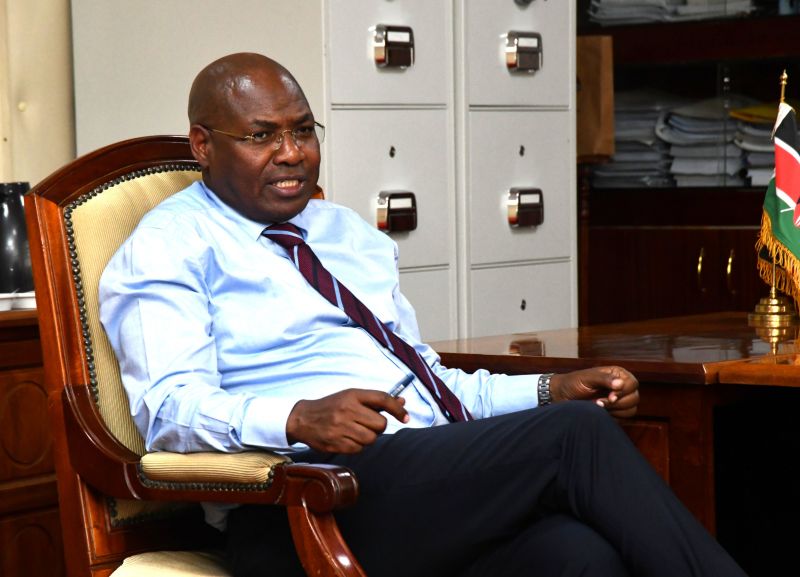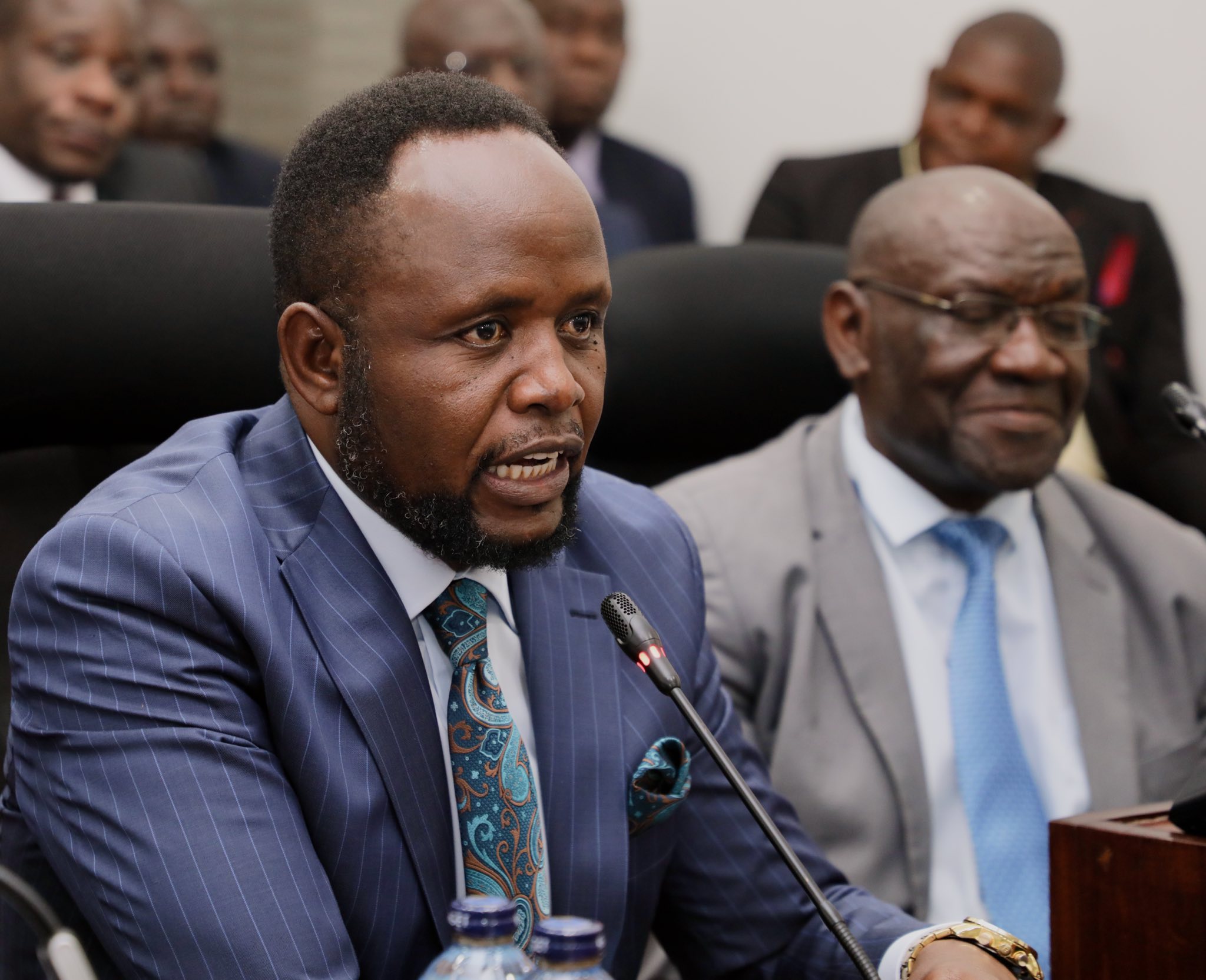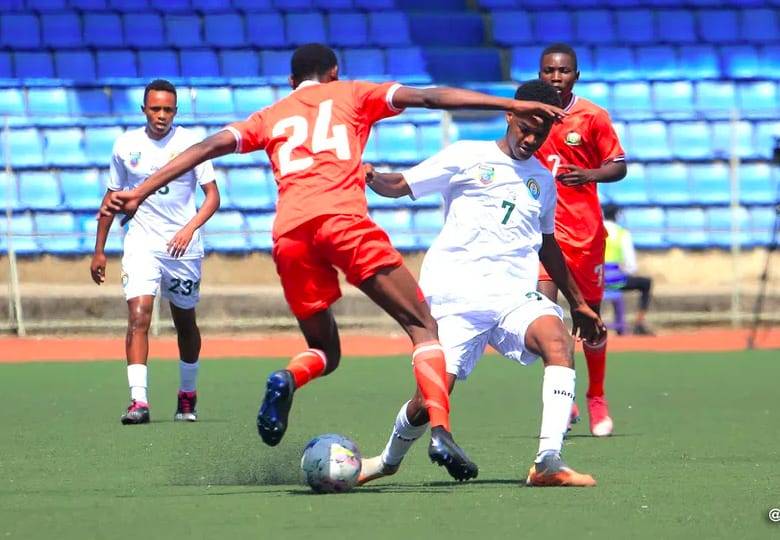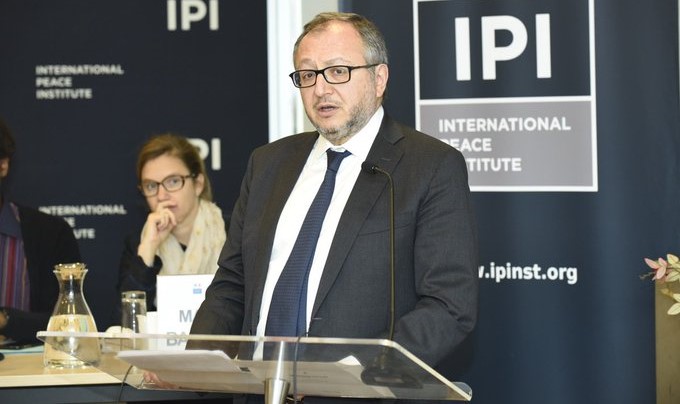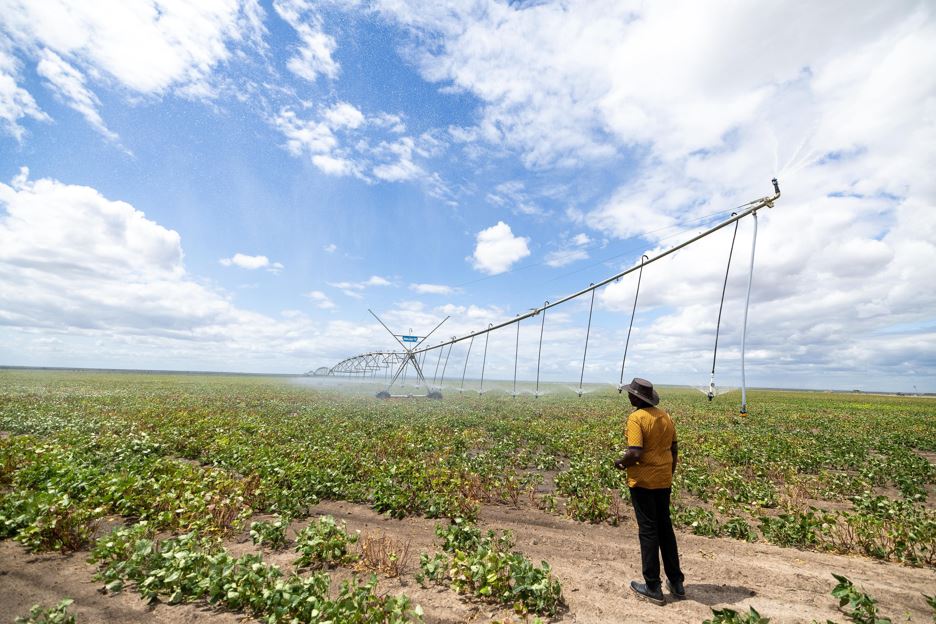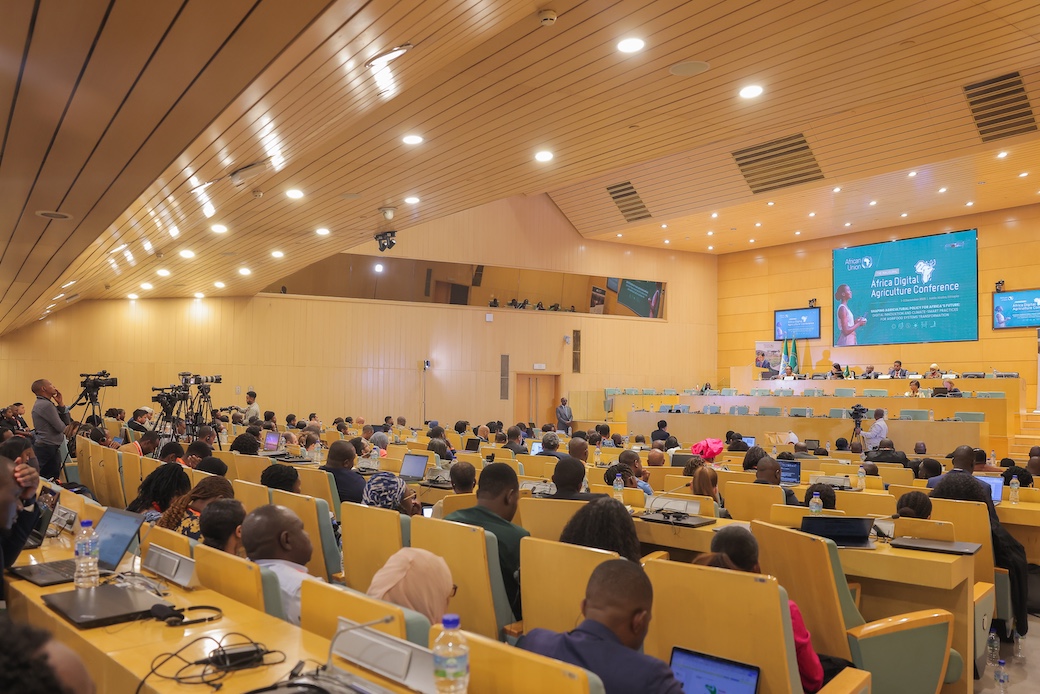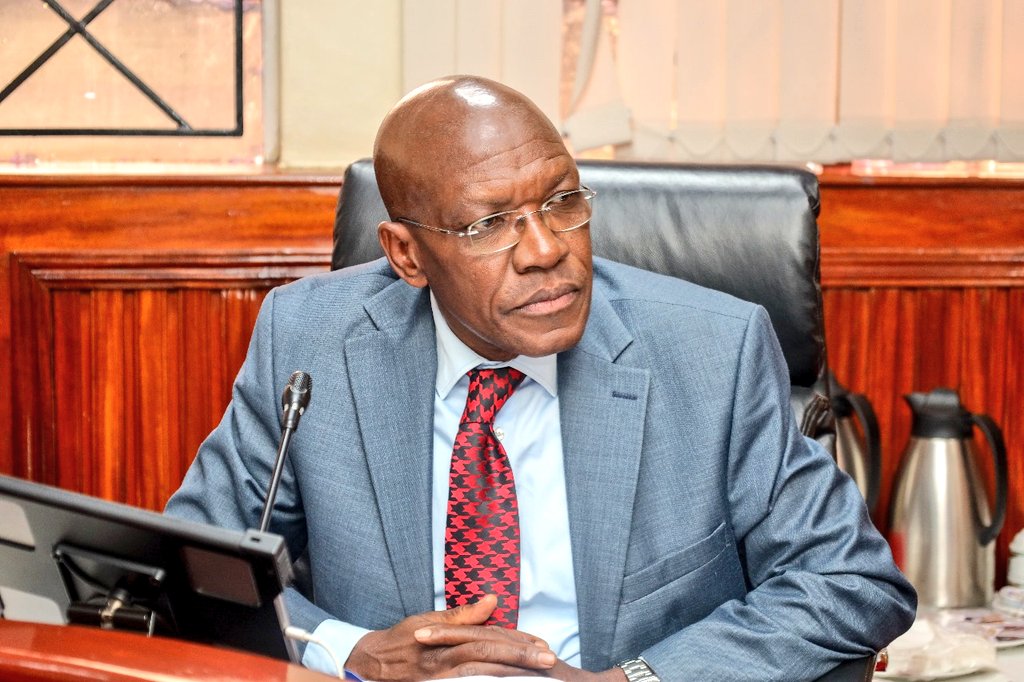Police boss Douglas Kanja opposes retirement age cap for IG, deputies
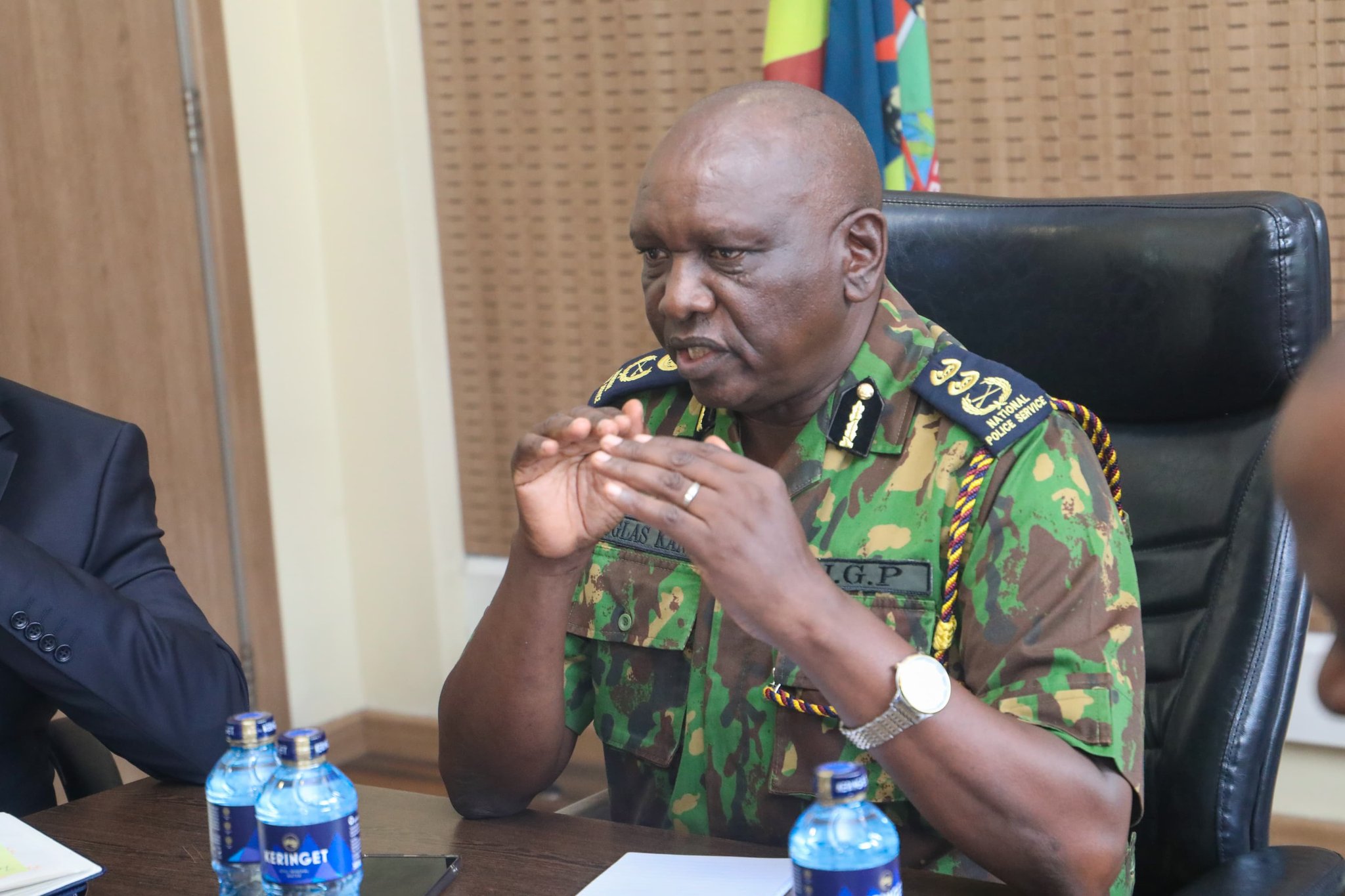
Douglas Kanja said imposing an age cap could unintentionally exclude skilled and visionary officers from contributing to national security leadership.
The question of whether to limit the retirement age of Kenya’s Inspector General of Police and Deputy Inspectors General has sparked intense debate, with Police Chief Douglas Kanja opposing the cap while oversight and legal bodies back it.
Kanja told the National Assembly Committee on Administration and Internal Security on Tuesday that leadership in the police should rely on competence, experience, and institutional knowledge, not age limits, stressing that seasoned leaders play a critical role in guiding officers and managing complex security challenges.
More To Read
- Wajir police nab suspect with AK-47 rifle in ongoing crackdown on illegal firearms
- LSK condemns violence in by-elections, warns of gaps ahead of 2027 polls
- 16 arrested over attack on Peter Kaluma during Kasipul by-election
- Police assure Kenyans of security ahead of Thursday’s by-elections
- Kanja admits police could have done better in handling Gen Z protests, advocates for training
- Kanja says hunt for Kware murder suspect Collins Jumaisi still on, appeals to public for help
“While age correlates with experience, it should not be used as a disqualifying factor for leadership. Competence, integrity, professionalism and strategic thinking should remain the principal criteria for appointment to the positions of IG and the two deputies,” Kanja said.
He added that imposing an age cap could unintentionally exclude skilled and visionary officers from contributing to national security leadership.
Kanja made his submission on the National Police Service (Amendment) Bill 2025, sponsored by Teso North MP Oku Kaunya.
The Bill proposes capping the IG’s retirement age at 60 and introducing a five-year term limit for Deputy IGs, who are currently not bound by age or term restrictions.
At present, there is no age restriction for these positions.
The Independent Policing Oversight Authority (IPOA), National Police Service Commission (NPSC), and the Law Society of Kenya (LSK) support the amendments. IPOA argued that the changes would improve accountability, align police leadership with public service standards, and reflect regional best practices.
“In Tanzania, the age of retirement for an officer in the rank of the Assistant Superintendent of Police up to the Inspector General is 60 years, while in Uganda, all police officers are required to retire at the age of 55 or after 20 years of continued service. There is, however, no distinct age of retirement for the Deputy Inspector General,” Ipoa said.
The Bill also seeks to restore clear procedures for the recruitment and removal of the IG and Deputy IGs, which were removed in 2014.
Currently, the President may appoint anyone to the IG position, including civilians, with Parliament limited to vetting nominees. NARPOK insists that leadership positions should be filled by officers with senior command experience in the Service.
“The principal object of the Bill is to amend the National Police Service Act to provide for an age limit of 60 for persons nominated and appointed to the offices of IG and Deputy IG,” the Bill notes.
It also includes term limits for Deputy IGs. Article 245(6) of the Constitution states that the IG serves a single four-year term.
The NPSC submitted that the amendment should not affect the tenure of an IG appointed before reaching 60.
NARPOK agreed, proposing that the IG be appointed before turning 60 and allowed to complete a four-year term unless removed. Committee members Col. (Rtd.) Dido Rasso and Francis Sigey supported capping the retirement age, warning that leaving it open-ended could hurt morale and create a closed leadership circle.
LSK praised the amendment as a progressive measure to strengthen integrity, competence, and ethical leadership in the service.
They suggested that if an IG begins a term before turning 60, redeployment afterwards should be considered. NPSC also clarified that deputy IGs’ retirement age should be 60 to comply with constitutional requirements and public service rules.
Kanja, represented at the session by NPS Legal Services Director Amos Obuga, emphasised that experience and leadership ability should take precedence over age.
He highlighted the value of veteran leaders in mentoring younger officers and addressing the demands of modern policing.
“Imposing a cap may inadvertently exclude qualified, capable and visionary officers from contributing to national security leadership merely because of chronological age,” Kanja said. Article 245(7) allows the President to remove an IG only for constitutional violations, misconduct, incapacity, incompetence, or other just cause. NPSC called for proper legislation to implement these constitutional safeguards and establish fair, transparent removal procedures.
MPs at the session, including Oku Kaunya, stressed the need to balance leadership efficiency with succession planning. The committee session concluded with Vice Chair Col. (Rtd.) Dido Rasso assured participants that all submissions would be considered in the committee report to Parliament.
Top Stories Today
